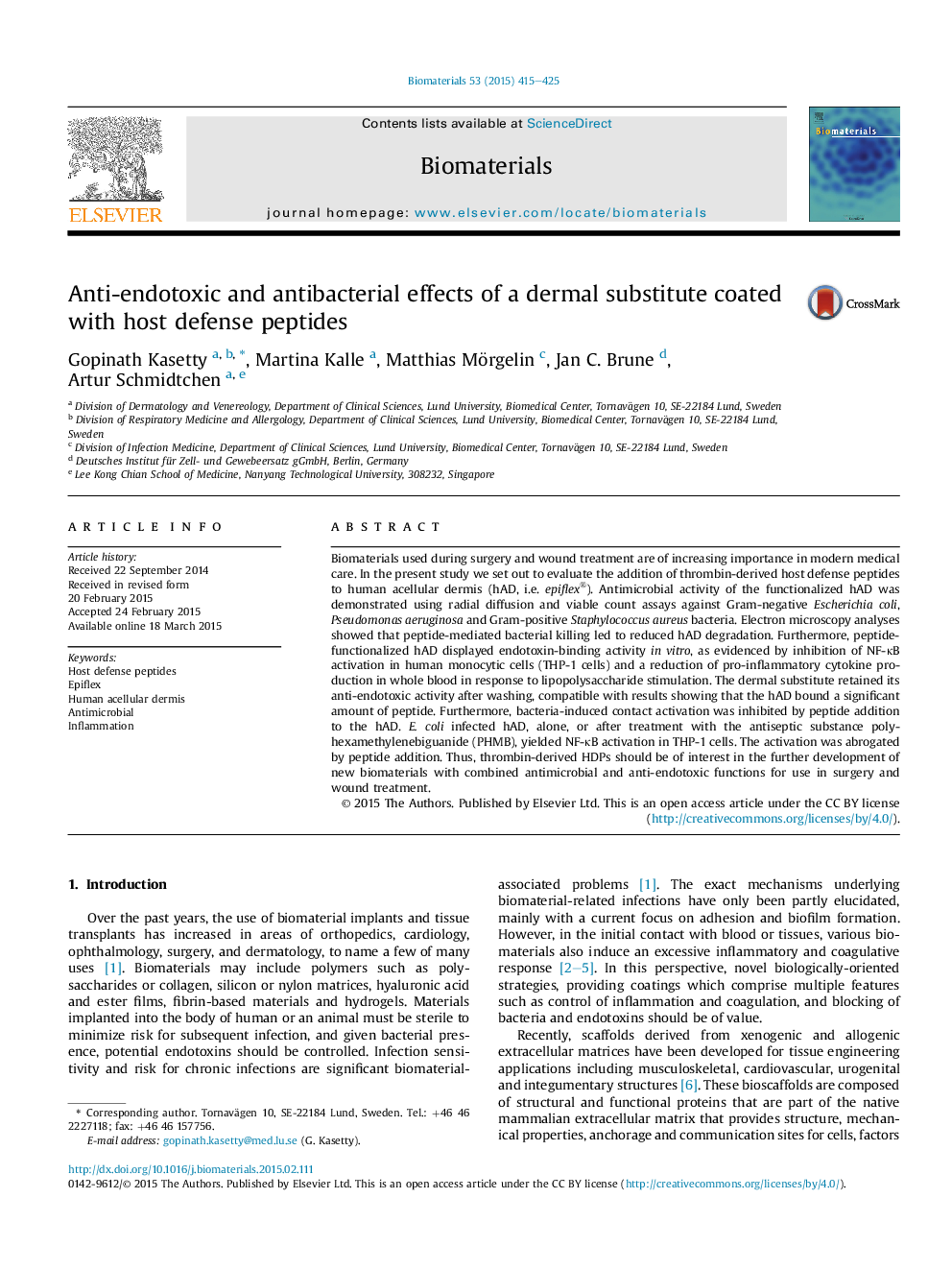| Article ID | Journal | Published Year | Pages | File Type |
|---|---|---|---|---|
| 6485839 | Biomaterials | 2015 | 11 Pages |
Abstract
Biomaterials used during surgery and wound treatment are of increasing importance in modern medical care. In the present study we set out to evaluate the addition of thrombin-derived host defense peptides to human acellular dermis (hAD, i.e. epiflex®). Antimicrobial activity of the functionalized hAD was demonstrated using radial diffusion and viable count assays against Gram-negative Escherichia coli, Pseudomonas aeruginosa and Gram-positive Staphylococcus aureus bacteria. Electron microscopy analyses showed that peptide-mediated bacterial killing led to reduced hAD degradation. Furthermore, peptide-functionalized hAD displayed endotoxin-binding activity in vitro, as evidenced by inhibition of NF-κB activation in human monocytic cells (THP-1 cells) and a reduction of pro-inflammatory cytokine production in whole blood in response to lipopolysaccharide stimulation. The dermal substitute retained its anti-endotoxic activity after washing, compatible with results showing that the hAD bound a significant amount of peptide. Furthermore, bacteria-induced contact activation was inhibited by peptide addition to the hAD. E. coli infected hAD, alone, or after treatment with the antiseptic substance polyhexamethylenebiguanide (PHMB), yielded NF-κB activation in THP-1 cells. The activation was abrogated by peptide addition. Thus, thrombin-derived HDPs should be of interest in the further development of new biomaterials with combined antimicrobial and anti-endotoxic functions for use in surgery and wound treatment.
Related Topics
Physical Sciences and Engineering
Chemical Engineering
Bioengineering
Authors
Gopinath Kasetty, Martina Kalle, Matthias Mörgelin, Jan C. Brune, Artur Schmidtchen,
